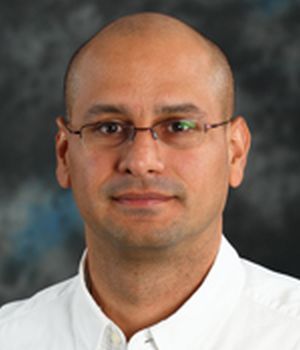
Publisher:
Bonnie King
CONTACT:
Newsroom@Salem-news.com
Advertising:
Adsales@Salem-news.com

~Truth~
~Justice~
~Peace~
TJP
Mar-20-2012 19:33

 TweetFollow @OregonNews
TweetFollow @OregonNews
Researchers Discover Protein Critical for Tissue Regeneration
Salem-News.comUC Merced researchers show that a protein found in humans stops regeneration when disabled in planaria, providing a potential strategy for preventing the growth of cancer cells.
 Nestor Oviedo is an Assistant Professor with the School of Natural Science, in Merced. |
(MERCED, CA) - A flatworm known for its ability to regenerate cells is shedding more light on how cancer could be treated and how regenerative medicine could better target diseases, according to researchers at the University of California, Merced.
In research published online in the Journal of Cell Science, biology Professor Néstor Oviedo has shown that signaling by a protein called Target of Rapamycin (TOR) — found in humans and most other mammals — is crucial for planaria’s unique tissue regeneration. Disabling the protein prevents the flatworm’s regrowth, a sign that disabling it in abnormal cells could prevent the growth of a cancer.
"It's a new model in which we can study stem cell behavior by manipulating the signaling pathways," Oviedo said.
Researchers have recognized that the TOR protein plays a role in cancer, aging and degenerative diseases, but they haven't figured out how it works.
Oviedo’s lab is approaching this question using tiny flatworms known as planaria. Long relegated as a scientific oddity, the planarian is now among the species that could be crucial in understanding the role of stem cells. The worm’s ability to repair itself is unparalleled, and its secrets could help combat cancer and degenerative diseases.
For this study, Oviedo's lab disabled the TOR protein in planaria and then amputated parts of the flatworm. Under typical circumstances, the organism would be able to repair itself.
But researchers discovered the planaria’s stem cells recognized they needed to regrow tissue but were unable to regenerate it in the correct place and instead formed tissues in abnormal places. This kind of regeneration hasn't been reported before. Additionally, the planaria with the disabled protein were unable to grow, even if nutrients were available.
In addition to stopping cancer, understanding TOR and its role in regulation could lead to the development of medicines to encourage tissue regeneration and to fight degenerative diseases, such as Alzheimer's.
Graduate student Harshani Peiris, who was the lead author on the paper, said the planaria gives researchers the ability to look at the reactions of an entire organism, rather than just looking at cells in a Petri dish.
"We have a cutting-edge look into what's happening at the system level," Peiris said.
The research was funded by a grant from the UC Cancer Research Coordinating Committee.
The paper's coauthors include undergraduate students Daniel Ramirez and Devon Davidian, Professor Marcos Garcia-Ojeda, and staff members Elyze Ozamoto and Frank Weckerle.
________________________________________________________
UC Merced, which opened Sept. 5, 2005, as the 10th campus in the University of California system and the first American research university of the 21st century. The campus significantly expands access to the UC system for students throughout the state, with a special mission to increase college-going rates among students in the San Joaquin Valley. It also serves as a major base of advanced research and as a stimulus to economic growth and diversification throughout the region. Situated near Yosemite National Park, the university is expected to grow rapidly, topping out at about 25,000 students within 30 years.
 |
 |
 |
 |
 |
 |
Articles for March 19, 2012 | Articles for March 20, 2012 | Articles for March 21, 2012
Quick Links
DINING
Willamette UniversityGoudy Commons Cafe
Dine on the Queen
Willamette Queen Sternwheeler
MUST SEE SALEM
Oregon Capitol ToursCapitol History Gateway
Willamette River Ride
Willamette Queen Sternwheeler
Historic Home Tours:
Deepwood Museum
The Bush House
Gaiety Hollow Garden
AUCTIONS - APPRAISALS
Auction Masters & AppraisalsCONSTRUCTION SERVICES
Roofing and ContractingSheridan, Ore.
ONLINE SHOPPING
Special Occasion DressesAdvertise with Salem-News
Contact:AdSales@Salem-News.com

googlec507860f6901db00.html



Terms of Service | Privacy Policy
All comments and messages are approved by people and self promotional links or unacceptable comments are denied.
[Return to Top]
©2025 Salem-News.com. All opinions expressed in this article are those of the author and do not necessarily reflect those of Salem-News.com.